Copenhagen and the noma legacy
From comfort food to fine dining, Copenhagen is the city with the largest number of gastro offshoots of famed restaurant noma and Danish chef René Red...
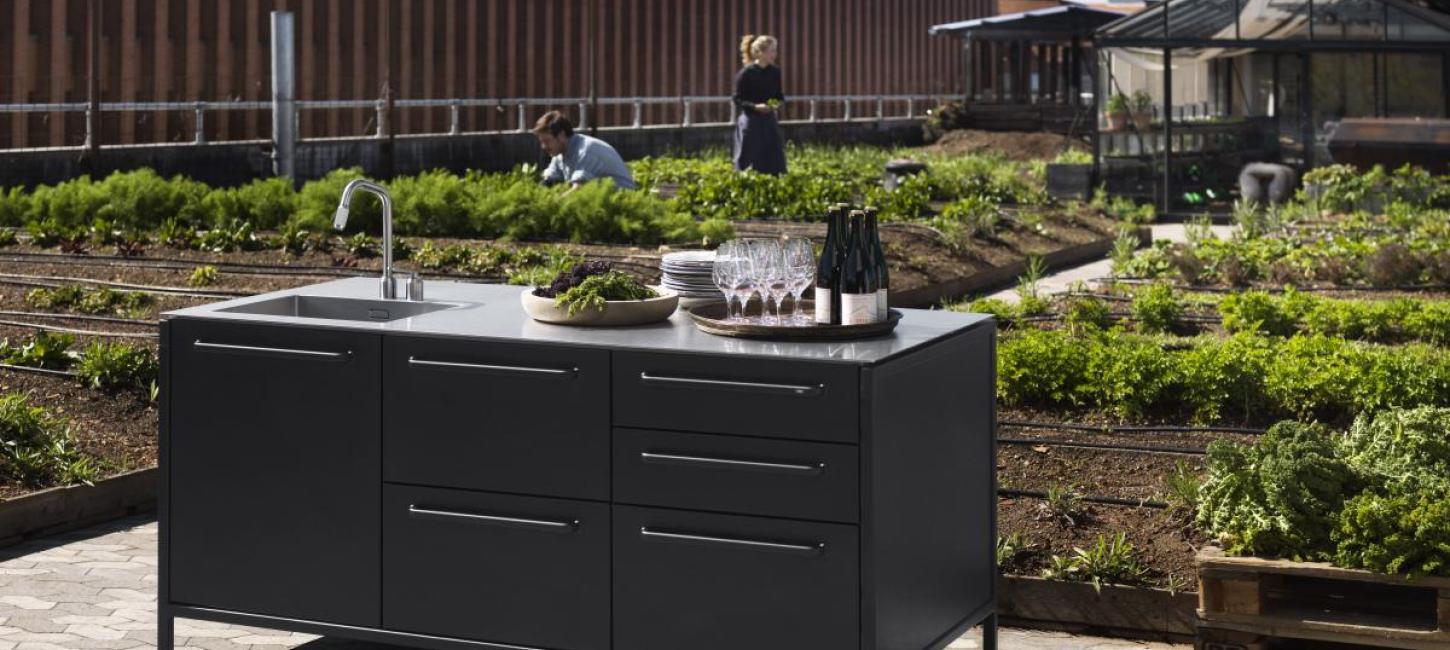
The concrete, the cobblestones, and the blue canals are making space for the greens in Copenhagen, as urban farms take over rooftops, backyards, sidewalks, and even the harbour basin.
The New Nordic Cuisine Movement seems to have succeeded in bringing everyone’s attention to locally sourced, seasonal and organic food. What used to be a practice of only a few pioneers across the Danish food scene, has been growing like never before, and the city’s landscapes have become the focus of attention. The locals are becoming conscious of cultivation and foraging, and restaurants and residents alike want to source their food directly from their own backyard, rooftop and, why not, the harbour in the search for sustainable produce.
Below you will find information about restaurants working with urban farming in Copenhagen and its surroundings.
Restaurant STUDIO has re-opened in Carlsberg Byen with 31-year-old head chef Christoffer Sørensen. Christoffer Sørensen is an experienced chef who has spent nine years working with culinary mastermind Claus Henriksen, former noma, Dragsholm Castle and now head chef of MOTA in Odsherred, whose kitchen focuses on locally foraged ingredients. Christoffer Sørensen emphasizes his culinary mindset at STUDIO by local products, foraged wild herbs, and a wide range of fermentations, which he turns into his own refined culinary language. STUDIO’s menu presents sustainably caught fish and shellfish from Danish and Nordic waters. The wild, fermented, and foraged are further unified with jack-knife clams, scallops, and Danish oysters as well as classic fine dining items like truffle and caviar along with the occasional cut of meat, primarily centered on Danish game.
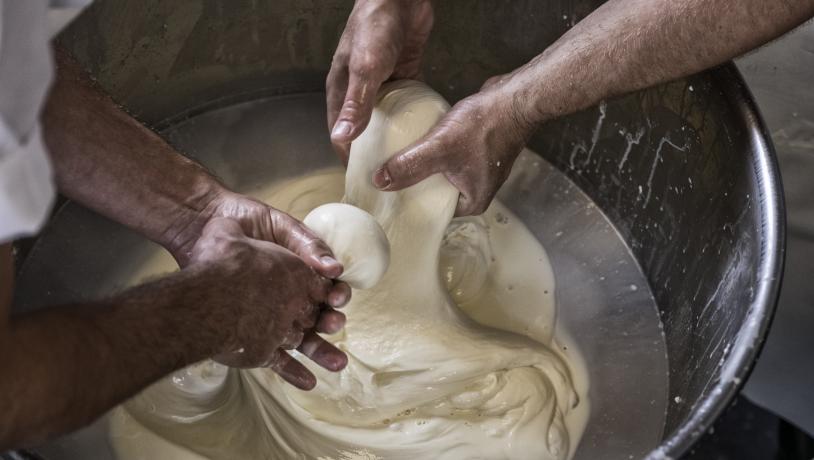
Bæst is an organic, Italian-inspired restaurant by Christian Puglisi. At Bæst, ambitions of creating an authentic Italian restaurant are set aside to create a unique Italian-style Copenhagen restaurant, where great Italian produce such as extra virgin olive oil and sun-ripened tomatoes co-star along with the best local produce sourced from organic farmers in Denmark. Every morning a team of chefs drive to nearby farms and harvest vegetables and collect milk from the cows. They bring it back to the kitchen of Bæst where they can be enjoyed by guests the same day. The restaurant also produce their own mozzarella and stracciatella on the first floor of Guldbergsgade in Nørrebro.
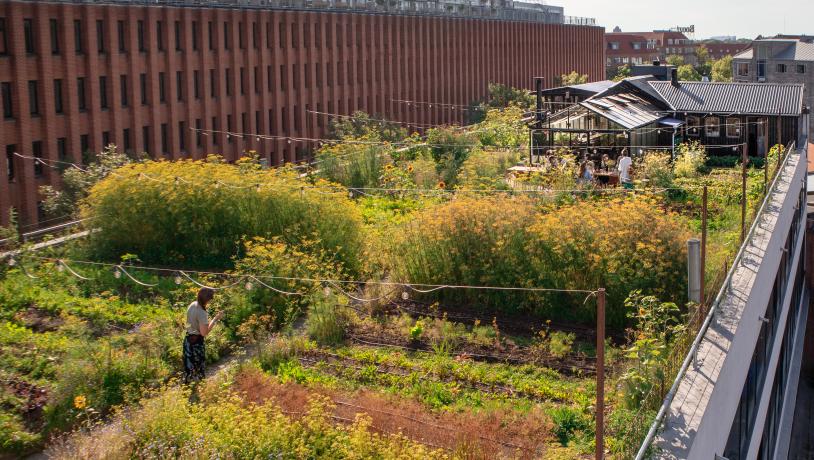
Gro Spiseri is a small eatery located on the rooftop of a parking lot in the residential district of Østerbro. Here, they co-exist with the rooftop farm ØsterGRO, where local residents grow their own vegetables and herbs. The restaurant uses the herbs from the rooftop farm and organic produce from local producers, as the vegetables go to people from the local community. Eventual leftovers from the members are used in the kitchen, to make sure that it is not wasted. ØsterGRO and Gro Spiseri are amongst the most iconic examples of how an urban space can have double functionality and create a life for the local community. GRO Spiseri is not like many other restaurants, and you can immediately feel the passion of the people working there. In the kitchen, four guys work closely together to shape the menu and select natural wines to accompany the food. The dinners take place in the greenhouse with one long table making up for 24 seats, creating a cosy atmosphere for communal dining.
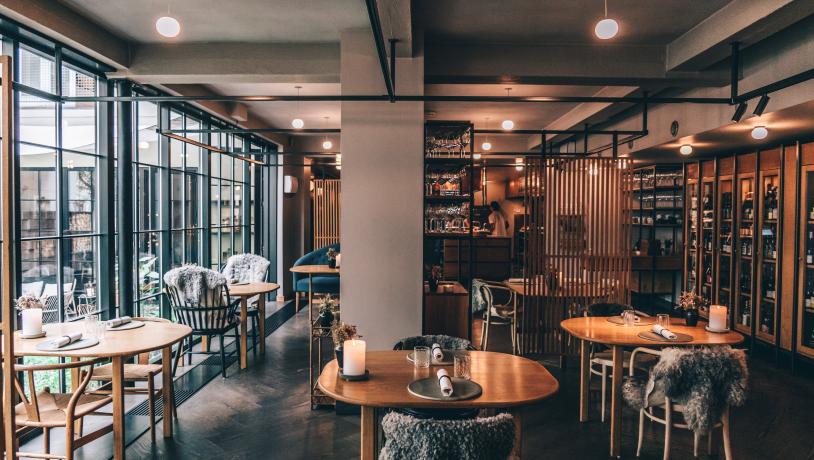
Much of the produce at Kadeau Copenhagen, the two Michelin-starred restaurant, originates from the restaurant’s own farm on Bornholm where they also have another restaurant called Kadeau Bornholm, which was the first Kadeau restaurant to open until the owners decided to open another in Copenhagen in the maritime district of Christianshavn. Here the menu is inspired by Bornholm specialities and Danish ingredients.
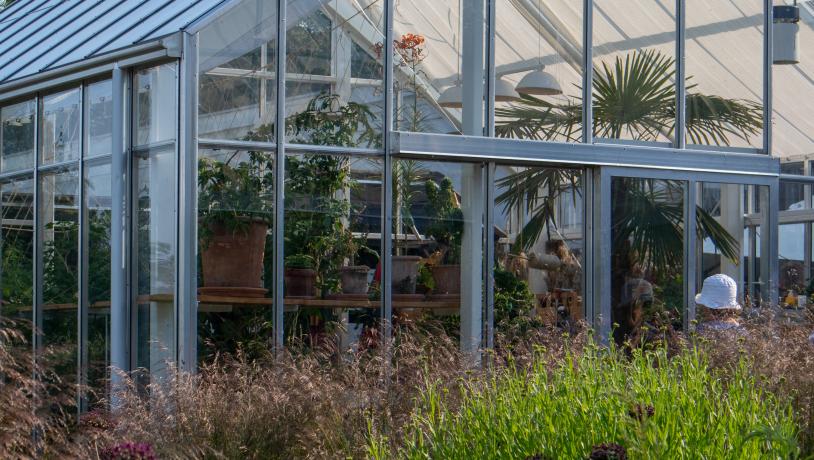
noma isn’t just any Michelin-starred restaurant. René Redzepi the owner of noma is one of the persons behind the New Nordic Cuisine Movement in which foraging is an important element. noma is, therefore, a true frontrunner of the New Nordic Kitchen Manifesto as they in their cooking revive the authentic use of local ingredients and cooking methods such as foraging, which has inspired and ensured its development throughout the nation. At noma, they source a lot of their products in their urban farm and glasshouses.

Restaurant ARK and Bistro Lupa are owned by two Australian chefs, Jason Renwick and Matt Niall, who focus solely on plant-based cuisine at the restaurants, with a high level of craftsmanship and friendly service. Their food takes inspiration from the local environment but also from across the globe. Both restaurants source most of their ingredients from local farms within a 2-hour drive and closely collaborate with the mushroom farm, Funga Farm, right next to ARK. Many of the nearby suppliers also deliver the products by a 15-minute bike ride. At both restaurants, mushrooms play an essential part of the menu, as they believe they contribute toward the promise of a more sustainable future.
Restaurant Vandvid is located on a floating boathouse and has a focus on urban farming and local, organic food with their own little farm on top of the deck, in the “Venice of Copenhagen”, Sluseholmen, a canal district in the southern part of the Copenhagen Harbour. In the summertime, they have facilities for swimming in the clean waters of the harbour, and they grow fresh herbs and vegetables right on board, which can be enjoyed by the guests shortly after. They also receive organic vegetables and top-quality meat from producers on a small Danish island called Glænø.
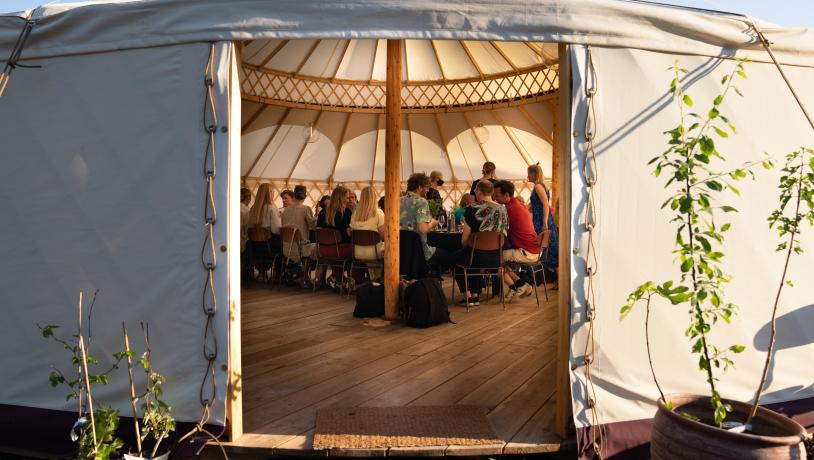
Øens Have is located in the former industrial district of Refshaleøen and is a green, vibrant area of urban farming in the centre of the city. The motivating force behind Øens Have is to create urban farming that inspires and encourages more green and sustainable living and a place that increases the synergy between nature, agriculture, and the city. Therefore, the aim is to create a community where both locals and travellers are able to enjoy the locally sourced food in the restaurant at Øens Have and inspire them to reconnect through their weekly volunteer day, tours, workshops, courses for kids and food experiences. Øens Have, for example, hosts a volunteer every Tuesday from 9 to 17 with a free communal dining lunch. Here everyone can come and help with maintaining the farm.
The urban farms have spread through the districts of Copenhagen at record speed growing vegetables and some serving food, where the locally grown produce can be enjoyed. Read more about the urban farming projects taking place in the Danish capital below.
Read an article by the urban farming expert, Signe Voltelen, one of our local contributors covering Copenhagen's culture, gastronomy and urban development below.
Download a selection of pictures related to gastronomy in Copenhagen. Press photos - urban farming in Copenhagen. The photographer must be credited.

Senior Manager – Press & PR